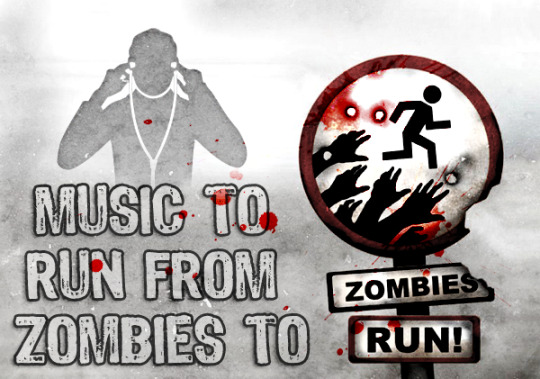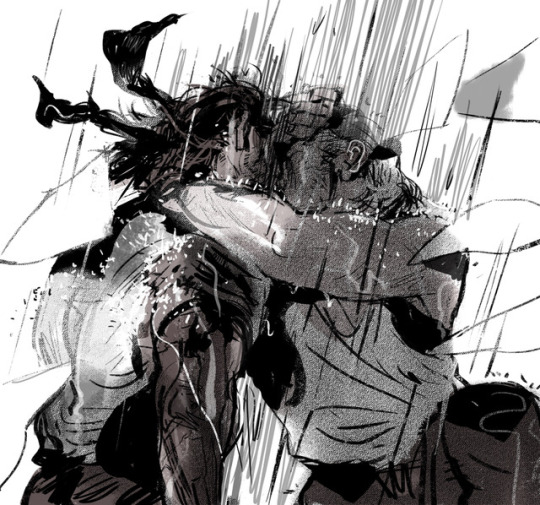Text
Fuck it
Get Down On It Friday
28K notes
·
View notes
Note
theres this capsule toy series i was obsessed with and i spent ALL of my money trying to get each one growing up

Oh, these are cute!
I'll be the raincloud one, come get me ;)
#i was gonna say 'oh there's 12 of them they could be zodiacs'#but then i looked them up and there's even more#i hope you got them all
1 note
·
View note
Photo










A selection of strange and cryptic personal ads from The New York Herald, 1860s to 1890s. 5/?
3K notes
·
View notes
Text
they're making me scan 80s kentucky fair stuff again and if i have to see the pig ad again my day will be irrevocably ruined
17K notes
·
View notes
Video
i promised an exclusive report about the day the worlds longest grill came to this tiny town and here it is. every moment of my life and yours as well has led up to this so please watch
212K notes
·
View notes
Note
putting you in capsule toy machine and spending all of my money trying to get you
Feed me your quarters, boy
1 note
·
View note
Text
he can infodump so deep inside me I'll have trivia running down my leg
59K notes
·
View notes
Text
i was so good at this water sort mobile game and i’m stuck on level like 348 and i’m convinced this one is impossible. i was stuck on it for weeks like a year ago and then quit and came back to it recently with a new hunger and vengeance and it’s kicking my ass i swear
82K notes
·
View notes
Text
nothing makes me feel more well adjusted than hearing about the problems that straight people in the periphery of my life are always having
51K notes
·
View notes
Photo

1. Imagine Dragons - Radioactive
2. Creature Feature - Aim For The Head
3. The Prodigy - Invaders Must Die
4. Devlin - (All Along The) Watchtower Ft. Ed Sheeran
5. Example - Midnight Run (Flux Pavilion Remix)
6. Biffy Clyro - That Golden Rule
7. Rise Against - Prayer Of The Refugee
8. Linkin Park - Bleed It Out
9. Fall Out Boy - My Songs Know What You Did In The Dark (Light ‘Em Up)
10. My Chemical Romance - Na Na Na
11. Sick Puppies - You’re Going Down
12. The Offspring - No Brakes
20K notes
·
View notes
Text
I think adults need summer vacation. Like let's just close down all our jobs for three months and play outside. Please. I'm so tired.
#yeah we get dick shit#when i was in middle school french class and i learned that the french basically take the entirety of august off i was blown away#that seemed completely bonkers#anyway i'm hoping to god the summer guy at work comes back this year#so i can give him my hours and get another summer of 3 day weekends for my mental health
134K notes
·
View notes
Text
Heterotopias, Pathologic, and what they have in common.
In the introductions of these I tend to put completely unrelated life anecdotes, because this isn't an academic paper. With that being said - I do hope to put together the next instalment of the bilingual madness project that I've started, but not right now. I'm in the part of my life where I'm majoring in a subject and a few months of study have granted me the delusion that I actually know things, and I'm taking that and running with it. This little unhinged essay will include the following:
A brief recap of who Foucault is (really brief. Just for the context)
A little less brief recap of his concept of the "heterotopia", an explanation of some necessary concepts and essays on the subject
The examination of heterotopias in game - how they exist within the fictional town on Gorkhon and what that means
Finally, a pretentious talk about video games and specifically Pathologic as a heterotopia, where I might go completely off the rails and lose all my trains of thought at once.
So let's get started.
Who is Michel Foucault?
Michel Foucault (1926-1984) was a French philosopher, critic, activist and damn near everything. There are few topics in my current major where his name doesn't come up. He's had a say in theories of language, gender, sexuality, identity, space, politics, power and so on and so forth. There have also been multitudes of people criticising his ideas, and not without good reason. In this discussion I'm not putting this dude on a pedestal and I don't encourage anyone to base their whole understanding of philosophy on one French guy's opinion. That being said, let's go look at some of his ideas in terms of language and space.
What is a "heterotopia"?
Wikipedia kindly tells me that the word was first used in the preface of an essay called "the Order of Things". In the preface, Foucault compared it directly to the concept of a utopia (which is where the alarm bells go off for any and all pathologic fans). This was preceded by an important discussion of language in terms of relations - the idea that many concepts and things are described and perceived through the lens of comparison and juxtaposition. Think about how one would perceive light by comparing it to darkness. In Foucault's opinion, these relations make up a grid that shapes our perception. These relations are, by definition, also mutually exclusive. That which is a dog cannot also be a cat. That which the language defines as close cannot be far.
Which is why, immediately after that, Foucault says "lol, syke" there ARE things that can encompass these contradictory sites within themselves; a fantastical conceptual instance in which something like that is possible - he calls those things "utopias". In the preface he even calls the road to such a utopia "chimerical". The more common view of a utopia is "a perfect place with no flaws". But in Foucault's writing, utopias are something that rises above our perception of relations and embodies multiple contradictory things at once - which is what makes it perfect. Most importantly, however - utopias have no physical space. They cannot. Our language doesn't allow for something that exists outside of comparisons, especially not when it physically manifests in our world.
This is why, for example, in pathologic, Aglaya Lilich so vehemently insists that the Polyhedron cannot stand. She calls it a utopia, and those things cannot exist, must not exist. They cannot take up physical space. Which is when our good friend Foucault comes back for a surprise round.
See, we were lead to believe that utopias cannot exist, and it's meant to be a comfort - there isn't anything in our perception of the world that shatters our grid of comparisons and juxtapositions and that's wonderful. But we were, all of us, deceived. And we should be scared, because, to quote him directly - "Heterotopias are disturbing, probably because they secretly undermine language, because they make it impossible to name this and that, because they shatter or tangle common names, because they destroy 'syntax' in advance, and not only the syntax with which we construct sentences but also that less apparent syntax which causes words and things (next to and also opposite of one another) to 'hold together'" (this is still from the preface, yeah). In saying this he does not make clear what exactly a heterotopia is, which is why we'll turn to his other works. Namely "Heterotopias" (the introduction to which, written by Anthony Vidler helped me a ton in understanding what the hell this overly verbose dude is talking about) and its later iteration called "Of Other Spaces." I think those were both originally speeches, but I've found them transcribed, and I'm more focused on their meaning anyway. Those two texts are almost the exact same thing, with a few select differences, which aren't exactly relevant.
We get our proper explanation in these essays that I'll sum up to my best ability. A heterotopia is something that takes up physical space, yet has properties similar to a utopia. A physical space that embodies contradictory qualities. One of his early examples of something that is a heterotopia (but also a utopia at the same time, go figure) is the mirror; the false reality in which you are portrayed in a physical space where you are not, because you are quite clearly not standing in front of yourself, makes it a utopia. Yet the fact that by existing it creates a space in which you are technically standing in front of yourself makes it a heterotopia. He also points out a children's playground as a heterotopia. In "Heterotopias" the essay he likens it to children playing on their parents bed, but we could compare it to, say... A sandbox. Children playing in a sandbox is a heterotopia. The sandbox is a physical space, and yet it's also an unreal "other" space that exists in the children's perception. This space, say, a town, is both existent and non-existent. Contradictory.
Foucault goes to say more about the kinds of heterotopias that can exist, and as he mentions them, it becomes clear as to why architects took to the concept so readily. Many of these heterotopias are not just physical spaces, but buildings - theatres, museums, prisons, etc. There are other types of heterotopias - cemeteries, or "heterotopias of festival", but that's beside the point. A prominent example Foucault brings up is the brothel (a place both public and private at the same time) but he states the "perfect" heterotopia to be the boat/ship. Seriously, he calls them the "greatest reservoir for our imaginations" ("Heterotopias") and waxes poetic about how if we didn't have boats we'd be deprived of dreams. But hey, I'm here talking about a video game, who am I to judge.
Architecture, Space, and the Town on Gorkhon
Good old Wikipedia defines heterotopias as spaces that are somehow "other." Which is a good explanation for people who already know what a heterotopia is. As I've explained above, it's a little bit more complicated than that. However when I first heard the definition, my brain went "That's the Polyhedron! That's the stupid tower from that one game I'm obsessed with!" And indeed, it'd be easy to look at Wikipedia's definition of a heterotopia and compare it to the Polyhedron - it's most definitely "other." Even by what we've established here - it's a utopian contradiction that exists in physical space. So is Aglaya Lilich wrong for calling it a "utopia"? Is it actually a "heterotopia"? Would that change anything at all about the events of the game?
Real answer is: I dunno. Out of context of the game's story, it very much would count as a heterotopia (if we treat it as something existing within a real space, not in game space). It would be an architectural wonder, but it would also be a physical space that encompasses multiple things at once. It's made of paper and mirrors at the same time. It's precarious and safe at the same time. You could even bring in a specific type of heterotopia it could be - namely a "crisis heterotopia" (as outlined by Foucault in both "Heterotopias" and "Of other spaces") - a kind that is supposedly phasing out of existence. A place where people go when they are in a state of crisis. This is where debate would no doubt arise, because there are a bunch of types of heterotopias it could be (heterotopia of deviation, for example) and I love that. It's contradictory. It cannot be juxtaposed to other types of heterotopias. It shatters the liguistic definitions we cling to. Meta as fuck and I love that for her.
But also, raining on the parade of "the Polyhedron is totes a heterotopia, y'all" is the existence of context within and without the game. The town on Gorkhon is not a real space, and isn't in a real time. And that is both as a "game space" (a game played by kids in a sandbox) and as a ""game space"" (a game played by us, the players). In this way, concepts can manifest themselves without manifesting, things can exist without existing. The Polyhedron only takes up physical space within the eyes of the dolls, but to the kids it is no more real than the town itself. Within the laws of the game - the Polyhedron never became a heterotopia. It's a concept that the children spoke into existence, a contradictory thing, that also remains within a fantastical "game space". It's only rational that Aglaya would call it a utopia - her meta awareness allows her to see the tower, the whole town, for what it is. And as a utopia, it should not have a physical manifestation within the world that Aglaya can perceive. She is still just a doll, after all, and the world she perceives is physical to her, even if she knows it's just "game space".
I'm not posing either one of these ideas as "the correct one". You can choose to believe that the Polyhedron is a heterotopia, or you can believe that it's a utopia because it's all a game. You can even say that all of this is bs, and all the developers at IPL were trying to say is that perfection is impossible. But I'm gonna keep playing around and talk about another fun thing: the heterotopias are everywhere.
Go back to treating the town on Gorkhon as a physical space again. You may recall in the examples of heterotopias I cited some buildings and spaces that might sounds particularly interesting. A theatre. A cemetery. There's also the idea that heterotopias have a unique relationship with time, in terms of either constantly accumulating time (museums) or emphasising its transience (fairgrounds). This temporal quality may remind you of the Catherdal in marble nest, where it warps time and changes the way it's perceived. In all honesty, when considering heterotopias besides the Polyhedron, my first thought went to the Abbatoir - it's a place where only select few are allowed, where a collective exists both privately and within the eye of society (which is also themselves), that accumulates time from way back in the history of the town. In short, just like the real world, the town on Gorkhon is full of heterotopias. And it's not surprising - Foucault's first principle of heterotopias established in both of the aforementioned essays is that "there is probably not a single culture in the world that fails to constitute heterotopias". Similarly, no longer thinking of the town on Gorkhon as a physical space, the town becomes a heterotopia as well. That is - it's a town within a sandbox during some kids' playtime. Delightfully meta. Let's all get delightfully meta, shall we?
Are video games heterotopias?
I was unable to find if Foucault has ever said anything about video games throughout his life. Technically he has existed at the same as them, but maybe at this point he had lost interest in talking about these spaces. There are multiple articles out there talking about games and Foucault's theories, and the sole reason why I haven't read them for this essay is because I didn't want to go down a goddamn rabbit hole and waste the next 8 hours reading about... Idk, tadpoles or smth. Let's work from the start, shall we?
Foucault clearly states that children playing pretend in a physical space is heterotopic. The place where they play becomes a heterotopia. Jumping off of that we can assume that things such as LARP (which takes place in a select location) is also a heterotopia, with an addition of some rules that the players adhere to. This leads us to considering things such as live dnd sessions heterotopic as well - players are gathered around a table. Their combat map, the physical space the DM uses to create the imagined space - all becomes a heterotopia (yes I made it about dnd, I'm a nerd of many talents). Once we take a step further, towards things like online dnd sessions and eventually video games - an important question emerges: can digital space house heterotopias? I'm sure Foucault would have considered cyberspace itself a heterotopia, if I've understood him correctly so far (and if I haven't... That sucks, cuz we're almost at the end of the essay). Can a heterotopia exist within another heterotopia? Would it be possible to peel away a layer by claiming that the digital screen - our window to the cyberspace, to the "game space" - constitutes as physical space? Is a video game, in that case, a heterotopia as well? And does that mean that by playing Pathologic we are experiencing a heterotopia, within a heterotopia, within a heterotopia? Are you tired of the "h" word yet?
Truth is, once again: I dunno. I like to believe that it is, cuz it allows me to think of Pathologic as something even cooler than I originally thought. Something even more meta. It's interesting thinking about how something that came from linguistics then went into architecture and eventually came to media entertainment. I also really like the implications that come with the significance of this concept in regards to the architect characters present within Pathologic. I wonder if they knew (given how patho is set in a dubious time, so it'd be difficult to establish if them knowing about Foucault's theories would even be possible). In part I just also felt fascinated by many people linking Pathologic to concepts within theatre (like Codex Entry, or that one post on here about Edward Gordon Craig by tumblr user erriga) and got really excited about bringing something similar to the table. I hope it sparks some discussion and brings forth some ideas from other passionate fans. Anyways.
Go read the actual stuff:
https://www.jstor.org/stable/43202545
https://www.jstor.org/stable/464648
(sorry about the links if they don't work. I'm not technologically advanced enough to figure out if smth is wrong before I post it)
68 notes
·
View notes

